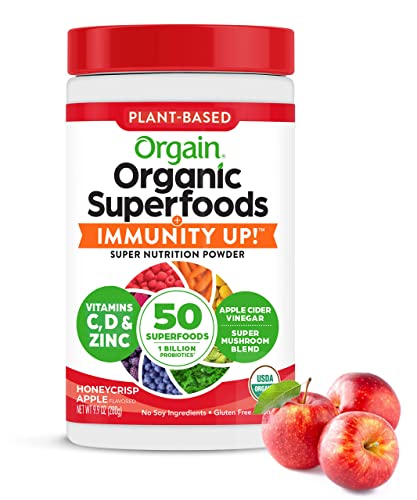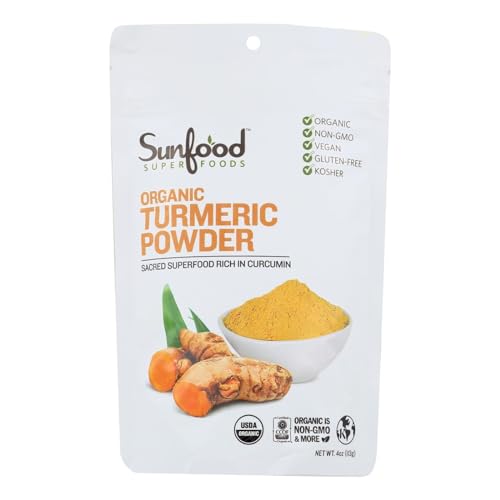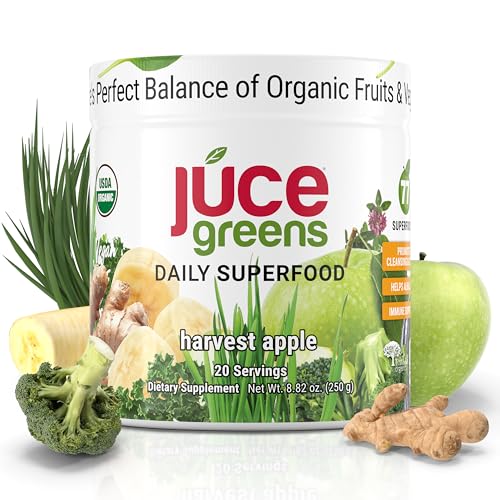
Introduction to Plant-Based Healing
Healing through plants takes a whole-person approach to wellness, connecting what we eat to how we feel—inside and out. It’s not just about the nutrients; it’s about realizing that the food on your plate has the power to transform your mood, energy, and mental clarity. Imagine a meal that doesn’t just fill you up but genuinely lifts you up. That’s what plant-based eating offers: a way to nourish your body and soul.
For centuries, people around the world have turned to plants for healing. Now, research backs up what they already knew: eating more fruits and vegetables can reduce inflammation, lower stress, and even improve cognitive function. For example, one study found that people who ate at least seven servings of fruits and vegetables a day were 25% happier than those who didn’t. Think about that—a simple shift in your diet could be the difference between just getting through the day and truly thriving.
Here’s something to reflect on: How often do you eat with the intention of supporting your emotional and physical health? What if every bite you took brought you closer to feeling your best?
The Power of Plant-Based Foods
Plant-based foods—like fruits, veggies, whole grains, nuts, and seeds—aren’t just good for you; they’re mood-boosting game-changers. Picture this: a plate full of colorful veggies, whole grains, and creamy avocado. Not only is it nourishing your body, but it’s feeding your mind. The antioxidants in those veggies fight off stress, while the healthy fats in the avocado help your brain stay sharp and focused.
Here’s the science behind it: foods rich in antioxidants, like blueberries, help combat oxidative stress, which has been linked to anxiety and depression. Meanwhile, complex carbs from whole grains like quinoa stabilize blood sugar, keeping your energy steady throughout the day. Ever feel that mid-afternoon crash? Swapping out a sugary snack for a bowl of oatmeal with berries could be the boost you didn’t realize you needed.
Think of plant-based foods as more than meals—they’re tools for a better mood, more energy, and a stronger connection between your mind and body.
Food and Emotional Wellness
It’s no surprise that what we eat has a direct impact on how we feel emotionally. Certain foods can stabilize your mood and reduce stress, while others—especially processed foods high in sugar and unhealthy fats—can leave you feeling irritable and fatigued. The connection between food and emotional wellness is powerful, and the good news is that plant-based eating makes it easier to stay balanced.
For instance, omega-3 fatty acids, found in walnuts and flaxseeds, have been shown to reduce symptoms of depression and improve mood. A study from the National Center for Biotechnology Information highlighted that diets high in antioxidants—like those found in berries, spinach, and kale—are linked to lower rates of anxiety and better emotional resilience. On the flip side, highly processed foods can lead to a cycle of mood swings, thanks to their impact on blood sugar levels.
Think about this: swapping a bag of chips for a handful of walnuts could do more than curb hunger—it might just brighten your day. Imagine pairing a spinach and berry smoothie with your morning routine. How might that change the way you feel by noon?
Physical Health Benefits of Plant-Based Eating
Plant-based eating isn’t just a trend; it’s a proven way to transform your health from the inside out. A diet rich in fruits, vegetables, legumes, and whole grains offers incredible benefits for your body, from improved digestion to reducing your risk of chronic illnesses.
The fiber in plant-based foods—think lentils, leafy greens, and oats—feeds the healthy bacteria in your gut, which keeps things running smoothly. Studies have shown that a fiber-rich diet can help prevent bloating, constipation, and other common digestive issues. And when your digestion is on point, your body absorbs nutrients more effectively, giving you that steady, vibrant energy you need to thrive.
There’s also evidence that plant-based diets lower the risk of heart disease and Type 2 diabetes. A Harvard study found that people who ate mostly plants reduced their risk of cardiovascular disease by 16%. Plus, the anti-inflammatory properties of antioxidants in foods like sweet potatoes and tomatoes play a critical role in supporting your immune system and keeping inflammation at bay.
Ready to take a small step? Try replacing one meal with a fiber-packed, plant-based option—like a hearty lentil soup or a quinoa veggie bowl—and notice how your body feels afterward.
Herbal Remedies and Superfoods
Herbs and superfoods have been used for centuries to heal and energize, and today, science confirms their incredible benefits. Take turmeric, for instance. Its active ingredient, curcumin, has powerful anti-inflammatory and antioxidant properties. Research from the Mayo Clinic suggests it may even help with mood regulation and cognitive function. A warm turmeric latte isn’t just cozy; it’s a small act of self-care with big health benefits.
Then there’s ginger—a true multitasker. Known for aiding digestion, reducing nausea, and soothing inflammation, ginger can be easily added to teas, smoothies, or stir-fries. Its benefits are supported by studies published in the Journal of Evidence-Based Complementary & Alternative Medicine, which highlight its effectiveness in reducing gastrointestinal discomfort and boosting overall gut health.
Leafy greens like kale and spinach are also nutritional powerhouses. Packed with vitamins and antioxidants, they’ve been linked to improved brain health and emotional wellness. Blending them into smoothies or tossing them into a salad is a simple way to give your meals a superfood boost.
- CLEANER INGREDIENTS: Our Organic Superfoods Powder contains nutrients from 50 plant-based superfoods from organic ancien…
- HIGHER STANDARDS: We believe it’s what’s on the inside that matters most. Our Immunity Up! Powder is Non-GMO, USDA Organ…
- Organic 50 Superfoods Blend: Each serving contains 50 organic superfoods like kale, flax, broccoli, spinach, quinoa, cin…
- ORGANIC TURMERIC POWDER – Turmeric powder is an ancient spice that has been used for centuries in India and China for it…
- PACKED WITH HEALTH BENEFITS – Our organic turmeric supplement powder is rich in Curcumin, a natural antioxidant. Curcumi…
- CERTIFIED ORGANIC & VEGAN – At Sunfoods, we only use the best quality ingredients. Our turmeric root powder is certified…
- This powerful blend thoughtfully combines our alkalizing farm fresh greens and wholesome fruits and vegetables plus anti…
- Product Note: Exposure to heat or sunlight may lead to melting/damage of product. Hence customers are expected to be ava…
- Crafted with 7 alkalizing farm fresh greens. Our nutrient-dense formula is filled with antioxidant-rich super foods like…
- GET YOUR GREENS : Our fruit and veggie supplement contains a blend of alkalizing greens, grasses, fruits, and vegetables…
- 77 ORGANIC SUPERFOODS: Each scoop of our greens superfood powder contains the nutritional equivalent of 4 servings of US…
- PRE + PROBIOTICS FOR GUT HEALTH: Our organic super greens powder contains 6 prebiotic plant fibers and 7 strains of livi…
Real Stories of Transformation
Hearing how others have transformed their lives with plant-based eating can be incredibly inspiring. These stories show that small changes, made consistently, can lead to powerful results—not just physically, but emotionally too.
Take Lisa, a 32-year-old teacher who spent years battling chronic fatigue and anxiety. Her days were filled with energy crashes, leaving her barely able to keep up with her students. Lisa started small, adding a green smoothie with spinach, banana, and chia seeds to her mornings instead of her usual sugary cereal. Over time, she swapped her processed lunches for salads with quinoa, roasted veggies, and a tahini dressing. Within three months, Lisa noticed a huge shift—her energy was steady throughout the day, and her anxiety eased as her body felt more balanced. Now fully plant-based, she says, “It wasn’t just about cutting things out—it was about giving my body what it needed to thrive.”
John, a retired athlete in his late 50s, was frustrated with high cholesterol and low energy. Despite years of being active, his diet revolved around processed snacks and fast food. Inspired by plant-based athletes, he committed to cutting out red meat and adding more whole, unprocessed foods. Breakfast became oatmeal topped with berries and walnuts, and dinners often included hearty lentil soups or vegetable stir-fries. After six months, John’s cholesterol levels dropped significantly, and he felt energized enough to start running again. “I thought I’d lost my spark, but it was there all along—I just needed to fuel it the right way.”
LaShonda, a busy mom of three, turned to plant-based eating after struggling with constant bloating and digestive issues. At first, she wasn’t sure how to make it work for her family, but she began with simple swaps: almond milk instead of dairy, and veggie-packed pasta dishes instead of heavy, cream-based ones. Her kids loved trying new recipes, like sweet potato tacos and homemade hummus. Over time, they’ve made more and more plant-based changes, with a family goal of fully embracing the lifestyle. “We’re taking it one step at a time, and even the kids are starting to love the journey,” she says.
Conclusion: Your Journey to Wellness
Plant-based eating is about so much more than the food you put on your plate. It’s about nurturing your body, supporting your emotional health, and creating a sense of balance in your life. Whether it’s adding more leafy greens to your meals or replacing processed snacks with nutrient-dense options, every small choice can lead to big changes.
Remember, this is your journey. You don’t have to overhaul your diet overnight. Start with what feels manageable—like one plant-based meal a day or trying a new recipe on the weekend. With every step, you’re moving closer to a healthier, happier you.
References
- National Center for Biotechnology Information: Antioxidants and Mental Health
- Mayo Clinic: Benefits of Curcumin
- Harvard Study on Plant-Based Diets and Cardiovascular Health: Harvard Heart Study
- Journal of Evidence-Based Complementary & Alternative Medicine: Ginger’s Digestive Benefits




